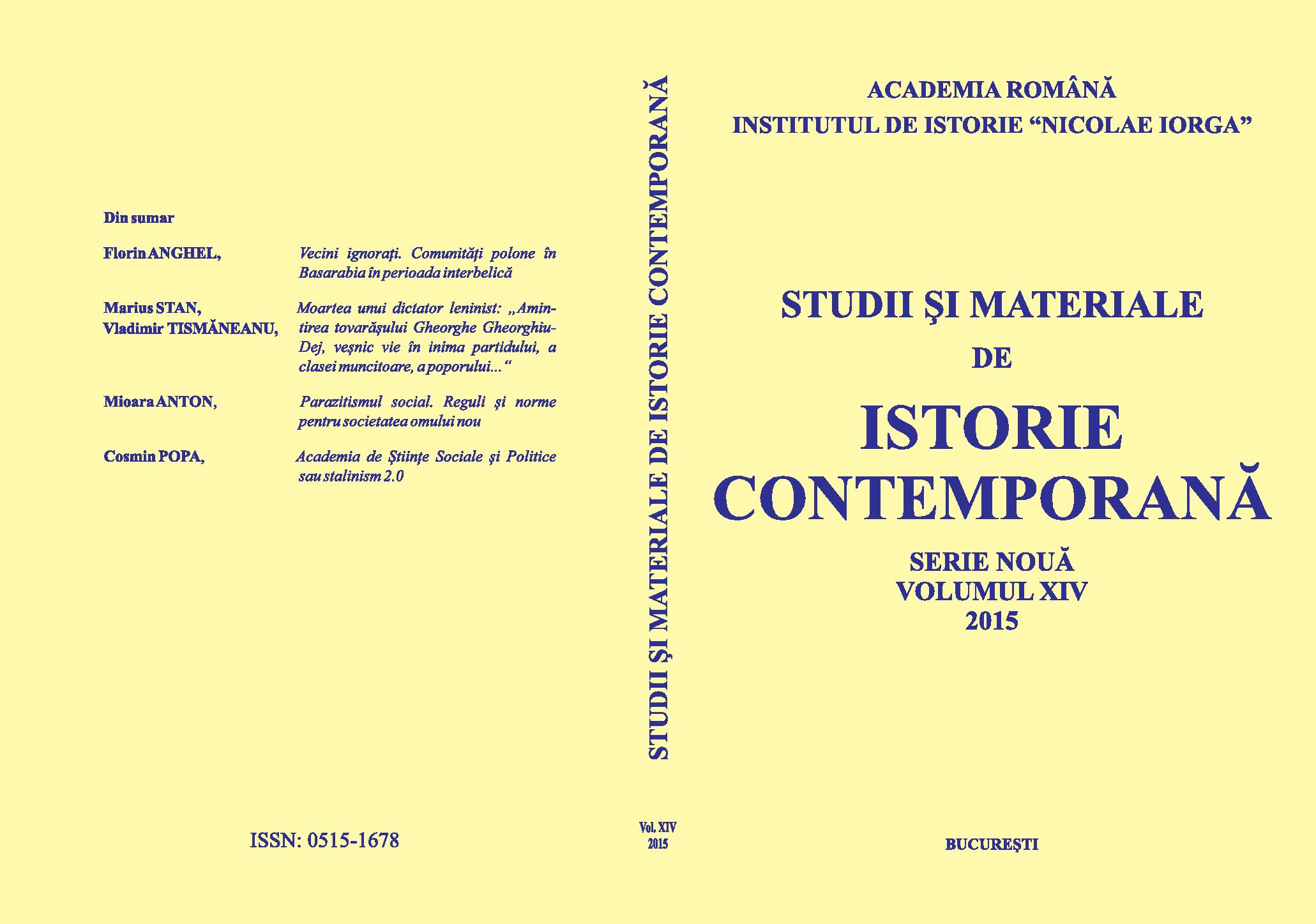Vecini ignorați. Comunități polone în Basarabia în perioada interbelică
Ignored neighbours. The Polish community in Bessarabia in the interwar period
Author(s): Florin AnghelSubject(s): History, Interwar Period (1920 - 1939)
Published by: Institutul de Istorie Nicolae Iorga
Keywords: Polish community; Bessarabia; the Russian Empire; Ethnic groups; Collective memory
Summary/Abstract: The mentality of most of the members of the Polish community in Bessarabia influenced by the ideological, cultural and political legacy of the Russian Empire and civically unencouraged by the Romanian authorities, had a strong impact on their final fate. How much was the Polish community in Bessarabia reduced? Unfortunately, the lack of any appetite (and I say, even interest, be it political or scientific) for the existence of this ethnic groups between the Prut and Dniester have led to conflicting data/statistics. It should be added, essentially, that the Polish community in Bessarabia does not have a specific place of collective memory (an area of origin, as in the case of most of the Poles in Bucovina): Poles settled in Bessarabia due to material or professional interests or desiring to obtain freedom in an underdeveloped region. The effort to revive national values, to resist against the pressures of the majority (through political, economic and educational-cultural leverage) have ended with the incorporation of Bessarabia and Northern Bukovina to the USSR after Kremlin's ultimatum from June 26-28, 1940. Only the independence of the Republic of Moldova in 1991 in other geographical frameworks than the interwar Romanian Bessarabia, allowed the rebirth and reevaluation of the values of the much depleted Polish ethnic community, between the Prut and Dniester.
Journal: Studii şi materiale de istorie contemporană (SMIC)
- Issue Year: 2015
- Issue No: 1
- Page Range: 130-142
- Page Count: 13
- Language: Romanian
- Content File-PDF

